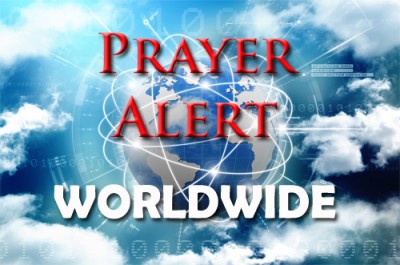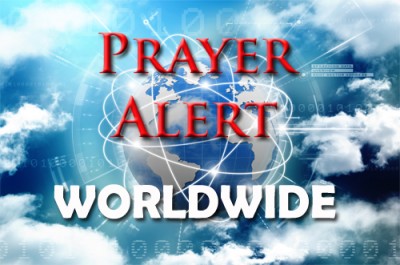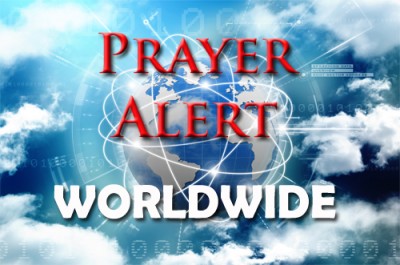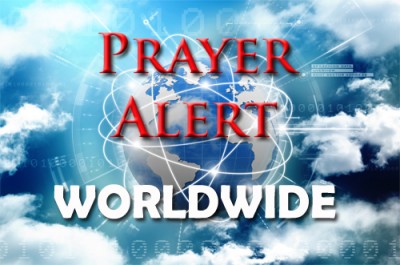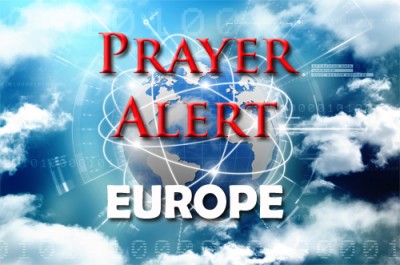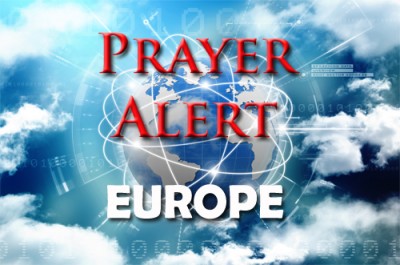China: persecution increases
The attitudes of Chinese local authorities towards Christians have turned sharply negative recently as the Christian population has grown. Authorities have been removing hundreds of crosses from churches, saying they violate building codes. Bao Guohua, a Chinese pastor, who opposed the campaign, was sentenced to 14 years in prison, and his wife to 12 years. In January authorities demolished a church in Fujian. Last month authorities opened a corruption probe into Pastor Gu Yuese, who had spoken out against the clampdown on Christian activity. China Aid said, ‘The government's criminal prosecution against Christianity is religious persecution.’ The clash over Christians' religious rights is being complicated by overseas organisations giving Christians support. The Chinese government is sensitive to foreign meddling in domestic affairs. In the past year, China's government has relentlessly pursued and jailed human rights lawyers receiving training and funding from foreign sources. See
Global: IS infiltration and chemical weapons
Christian refugees fleeing IS reported seeing a jihadi militant disguised as a migrant. German police tracked the man down but refused to charge him because he had not committed a crime in Germany. It is feared that militants are exploiting the refugee crisis to smuggle terrorists into countries. The Assyrian Christian refugees who made the concerning/serious claim were granted asylum after being held hostage by IS. Also this week Iraqi and US officials revealed that an IS leader they captured last month was the head of a chemical weapons unit. He is now being questioned about IS’s use of chemical weapons. He had been in Saddam Hussein's Military Industrialisation Authority where his speciality was developing biological and chemical weapons. In recent months, according to Associated Press, he was working on building a similar branch for IS. See:
Nigeria: oil spills in the Niger delta
Oil giant Shell is being sued over oil spills in the Niger delta by communities which want Shell to clean up their land. Some of the claimants are the Ogale, a community of 40,000 farmers or fishermen living in Rivers State. The Bille community of fishermen are the other party suing. Neither community has had clean drinking water since the spills began in 1989. Their case is being handled by law firm Leigh Day, who point to a November 2015 report by Amnesty International in which Shell said four spill sites would be cleaned up. They are still contaminated. In 2011 the United Nations Environment Programme found water contaminated with oil by-products and recommended a clean-up. Pipelines are targets for thieves who steal crude oil and refine it locally, leading to more spills and damage through explosions. Shell dismisses any suggestion that it has knowingly continued to use unsafe pipelines, and says it is at an ‘early stage’ in reviewing the claims.
Afghanistan: militants refuse fresh peace talks
The Taliban have been rebelling against the Afghan government since 2001, and will not participate in new peace talks until international forces leave the country. Peace talks have been on hold since last year. The Quadrilateral Coordination Group, made up of representatives from Afghanistan, Pakistan, China and the US, wanted to have talks with the Taliban early this month, but the Taliban vetoed the idea. ‘We reject all such rumours and unequivocally state that the leader of the Islamic Emirate has not authorised anyone to participate in this meeting,’ they said in a statement. The Islamic Emirate wants the occupation of Afghanistan to end, blacklists to be eliminated, and ‘innocent’ prisoners freed. The Taliban have stepped up their opposition to the Afghan government with a winter offensive. The US has launched air strikes against Taliban positions, something the Taliban say must stop before talks are resumed.
Christian TV gives hope to Syrian refugee children
As more and more people are fleeing Syria and arriving at refugee camps in neighbouring countries, SAT-7, a Christian satellite channel, offers on-air education to children in core curriculum subjects, alongside messages of love, forgiveness, and reconciliation. The ‘My School’ programme goes out five days a week teaching young children Arabic, English and Mathematics. It is also providing children and families with hope for the future amid the humanitarian crisis.
Making disciples of refugees
This week a Christian worker returned from a country where there are countless Syrian refugees in camps. He and his team talked to and prayed for the people there. He could not believe the spiritual openness and hunger! He estimated that half of those they talked to had had dreams of Isa (Jesus). They were able to share the love of God with these hurting people. They also saw God perform miracles of healing as this team ministered to the people. What an opportunity! Pray for God to open more and more hearts and lives! Many of these refugees have never heard the gospel and now they are in more open places, which provides an incredible opportunity to share the good news with them!
Germany: refugees have no voice
‘Christians and Muslim converts to Christianity have no voice’, says Pastor Gottfried Martens, whose church in Berlin is a ‘drop-in-centre’ for more than 1,000 Christian refugees. ‘In the refugee homes many Christians live in fear of Muslims who harass them verbally and physically, assault them, threaten them, and treat them as infidels or as animals. The Open Doors organisation is now conducting a nationwide survey in refugee homes and local communities on the conditions under which Christians have to live, and the results will be brought to the attention of the public. Although newspapers and television are now reporting on serious attacks, there is a thick veil over the hearts of our people such that there is no outcry against these crimes. Unfortunately the main churches are also not speaking out for the rights of Christian refugees and converts from Islam.' Note: three state elections on 13 March have been turned into a type of referendum on the chancellor’s refugee strategy.
Europe: summits on refugee crisis
Europe’s migration crisis is hurtling towards a potentially defining turning point this month, with the pillars of the EU’s policy under sustained assault and German chancellor Angela Merkel facing the first electoral test of her refugee policy. EU leaders are preparing for emergency migration summits on 7, 17, and 18 March against the backdrop of desperate scenes at the Greece-Macedonia border, where migrants have been beaten back with tear gas. Four crucial components of Europe’s migration response are at stake: the centrepiece effort to stem irregular migration from Turkey; the capacity of Greece to cope with tens of thousands of migrants trapped on its territory; the willingness of Europe to unite behind a common policy; and the political patience remaining in Germany, the main destination for migrants reaching Europe. Intense diplomacy over the next fortnight may dictate whether the EU is able to get a grip or fracture and fall back on national defences against an expected influx this spring and summer.

